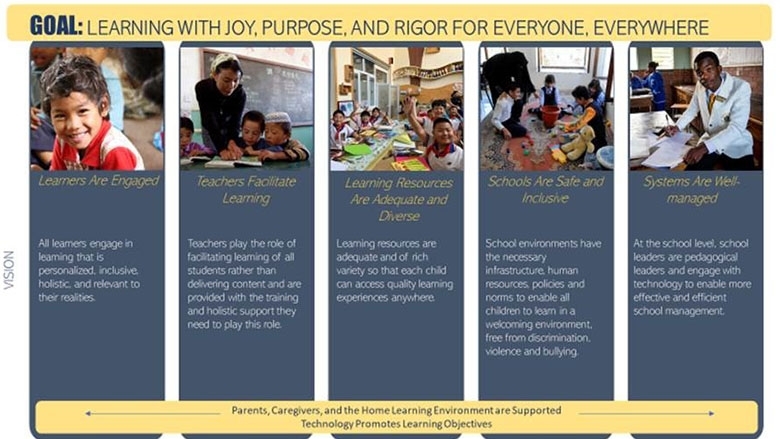
In the future, learning should happen with joy, purpose, and rigor for everyone, everywhere
- To guide our policy advisory and operational support to countries, the report discusses policy actions that are needed to accelerate learning and that characterize the way many successful systems operate.
- These are presented within five interrelated pillars of a well-functioning education system that underpin the World Bank’s strategic education policy approach: learners, teachers, learning resources, schools, and system management.
- Countries can chart their own path with a political commitment to carry out investments and reforms in five pillars that ensure that:
- Learners are prepared and motivated to learn—with a stronger emphasis on whole-child development and support to learning continuity beyond the school.
- Teachers are effective and valued—and ready to take on an increasingly complex role of facilitators of learning at and beyond the school with use of education technology.
- Learning resources, including curricula, are diverse and high-quality—to support good pedagogical practices and personalized learning.
- Schools are safe and inclusive spaces—with a whole-and-beyond-the-school approach to prevent and address violence and leave no child behind.
- Education systems are well-managed—with school leaders who spur more effective pedagogy and a competent educational bureaucracy adept at using technology, data, and evidence.

- Investments and reforms in each of the pillars are needed today to lay the foundations for the future of learning.
- The report also discusses core principles that should guide systemwide reform efforts so that policies within each pillar offer the greatest value for money and are scalable and sustainable.




